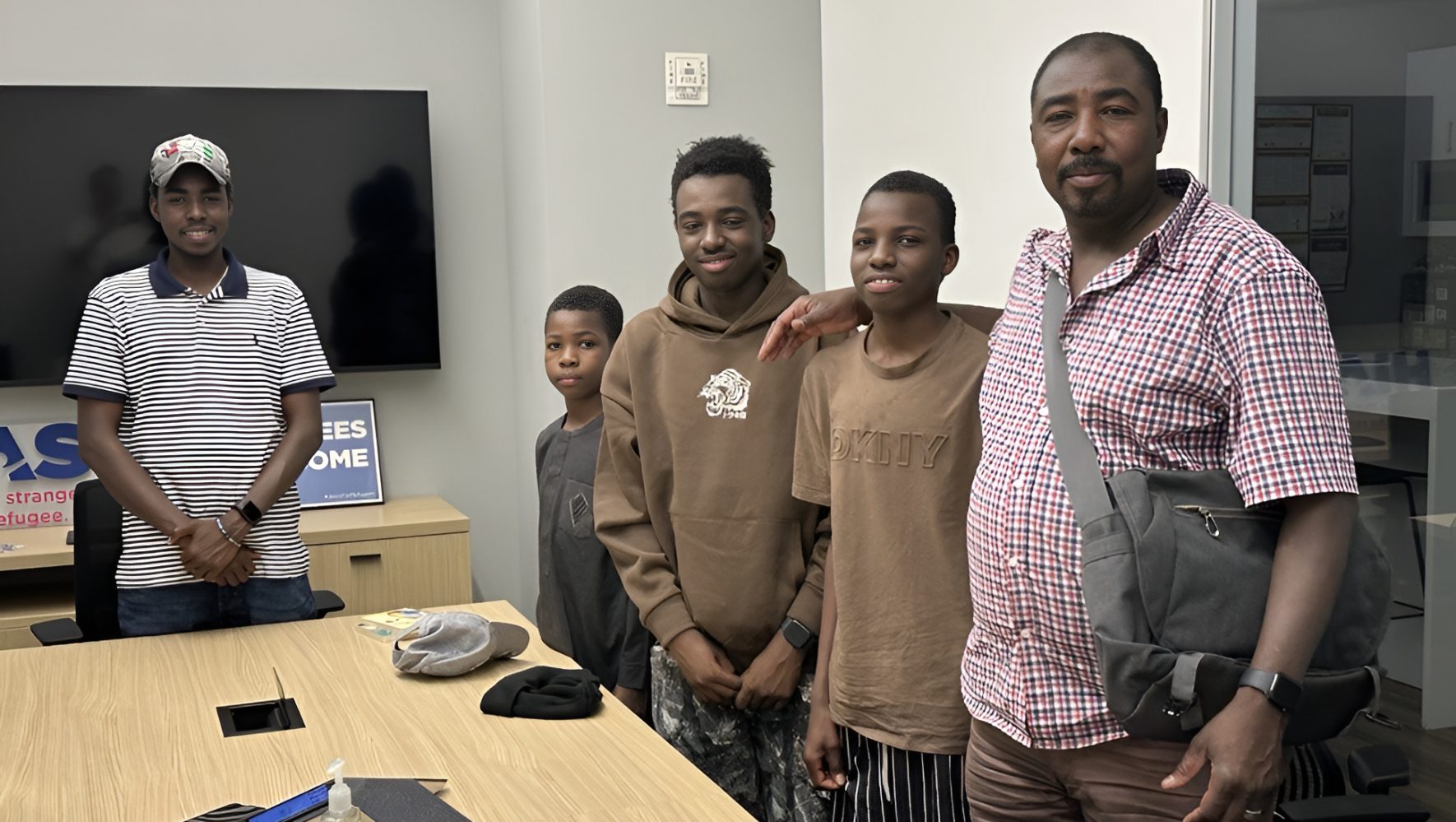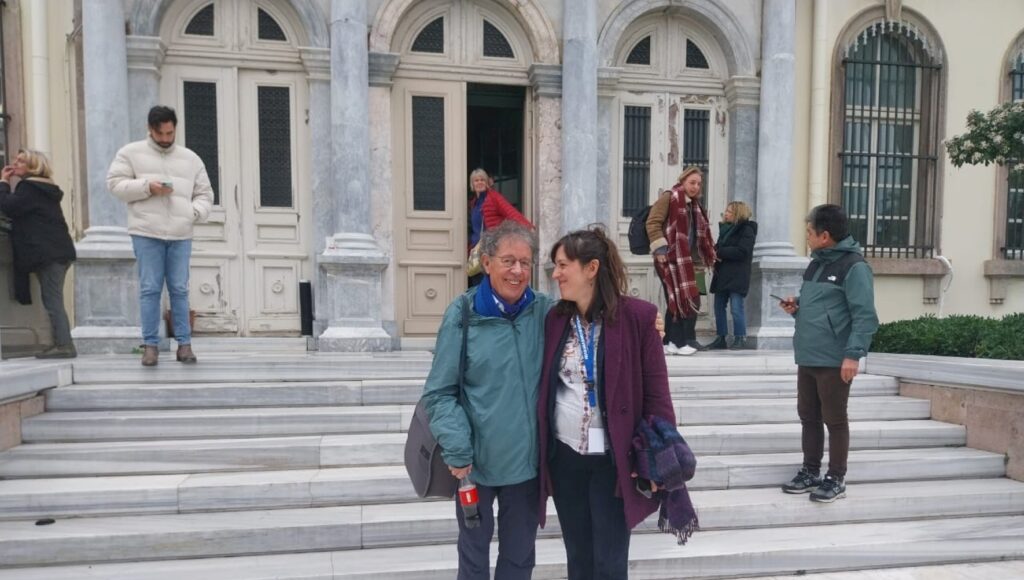
Dressed in sneakers, t-shirts, shorts, and wearing baseball caps, Rahman* and his four sons look pretty much like every other family walking around midtown Manhattan on a scorching July afternoon. But their journey from Chad, where the family is from, to the United States was anything but ordinary.
Rahman* was born and raised in the Dar Tama region of Chad, near the country’s border with Sudan, and the ethnic homeland of the Tama minority. As a child, Rahman spoke Tama with his family and only learned French, Chad’s official language, in school. But life for the Tama people was not easy. The Zaghawa, a neighboring tribe, routinely conducted raids of Tama livestock and agricultural products and eventually resorted to murder. Rahman’s grandfather was active in standing up for the rights of the Tama people, but this came with consequences. It made him a target and led to him fleeing Chad.
Donate today
Driven by a desire to help and inspired by his grandfather, Rahman joined ADHET, a human rights organization, to raise awareness of the Tama people’s plight. In October 2014, Rahman was visited by his grandfather, who had been living as a refugee in Sudan. His grandfather told him that representative of the Chadian government had come to the camp to bring the Tama people back to Chad but that he did not trust their intentions. A few days after this visit, a group of armed men in green military uniforms burst into Rahman’s home and began beating him in front of his family. He was blindfolded, then taken away in a truck and placed in a cell, infested with insects and mice, that he shared with nine other men for several days. During his detention, Rahman was given only water and rotten bread to eat. He was beaten during interrogations from his captors and threatened with death.
“In my country,” Rahman said, reflecting on the experience, “doing the right thing only gets you punished.”
A colleague from ADHET arranged for Rahman to be released in the middle of the night and then helped him secure a passport and visa to the United States. Upon arriving in the U.S., Rahman came to HIAS, who assisted him in filing for asylum.
His journey, though, was far from finished. For an asylum claim to be successful, claimants must demonstrate that they suffered harm and face a well-founded fear of persecution on account of one of the five protected grounds: race, religion, ethnicity, membership in a particular social group, or political opinion. Rahman’s Tama ethnicity and affiliation with a human rights organization made him a strong candidate under U.S. law.
“In my country, doing the right thing only gets you punished.”Rahman
HIAS attorneys began to work on his case in 2015, but the initial application was referred to the immigration court. Rahman was now in deportation proceedings with one last chance to prove his asylum claim. In late 2021, while he was waiting for his final hearing and decision, Rahman’s wife, the mother of his children, passed away, leaving their four children alone with no mother or father.
On April 18, 2022, the immigration judge approved Rahman’s application for asylum in the United States. HIAS immediately filed petitions for Rahman’s children to come and join him, and the bureaucratic process began anew. Last year, however, a new challenge emerged — a change in government that promised enormous changes to the American immigration system.
The older two children arrived in November 2024, well in advance of President Trump’s inauguration, but the younger two remained temporarily in Cameroon. On June 4, 2025, the situation gained fresh urgency: The Trump administration announced a travel ban prohibiting the entry of nationals from 19 countries, including Chad, to the United States. For Rahman’s two younger children to enter the United States, they needed to arrive prior to the travel ban’s implementation date of June 9.
The race against the clock began. HIAS assisted Abdraman with booking their flights, and on the day of their departure, Rahman’s attorney made multiple calls to the airline after the children were initially denied the ability to check in due to being unaccompanied minors. The two younger children arrived in the United States on June 7, 2025 — two days before the deadline. Eleven years after Rahman fled Chad for safety in the United States, and four years after his wife had died, he was finally reunited with his children — including one, aged 10, whom he had never seen before.
Now together, the family imagines its future in the U.S. The younger boys are now enrolled in school, and speak easily of their dreams in this country. As for Rahman, he is happy to stay put and see what the future brings.
“I am so grateful for HIAS for giving my family a chance in this country,” he said.



